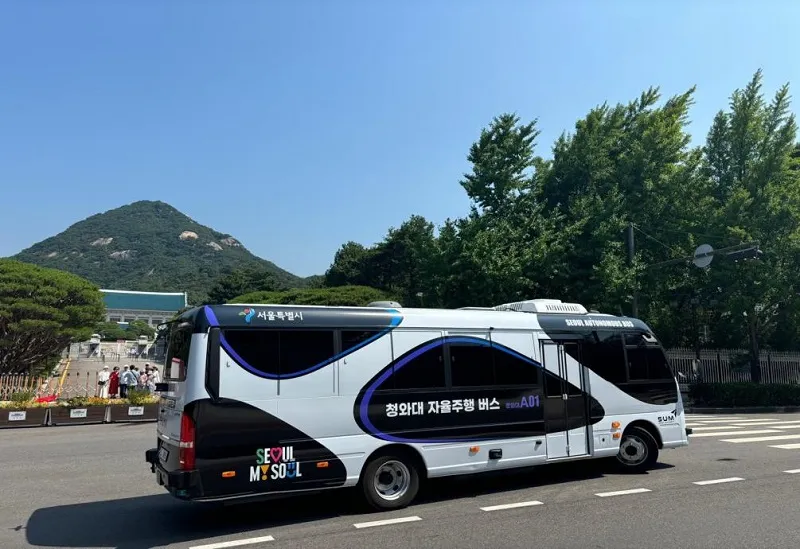
Autonomous buses have been integrated into the city of Seoul's public transport system following an 11-month trial.
It costs the same as standard buses on the network, and runs at five locations every 15 minutes on a 2.6km route around some of the South Korean capital's key tourist spots between Gyeongbokgung Palace, Cheongwadae and the Gyeongbokgung Station.
Seoul Metropolitan Government (SMG) says the bus offers free transfer to passengers with transportation cards and unlimited access for Climate Card users.
Operating Monday to Friday, it stops at Gyeongbukgung Station (Hyoja-ro Entrance), National Palace Museum of Korea (Yeongchumun Gate), Cheongwadae, Chunchumun Gate and Gyeongbokgung Palace/National Folk Museum of Korea.
The Cheongwadae AV began its pilot operation in December 2022, and SMG reported "a large number of users and a high satisfaction rate, with a total of 45,621 local and international passengers". Operation closed last November to prepare for the paid service.








